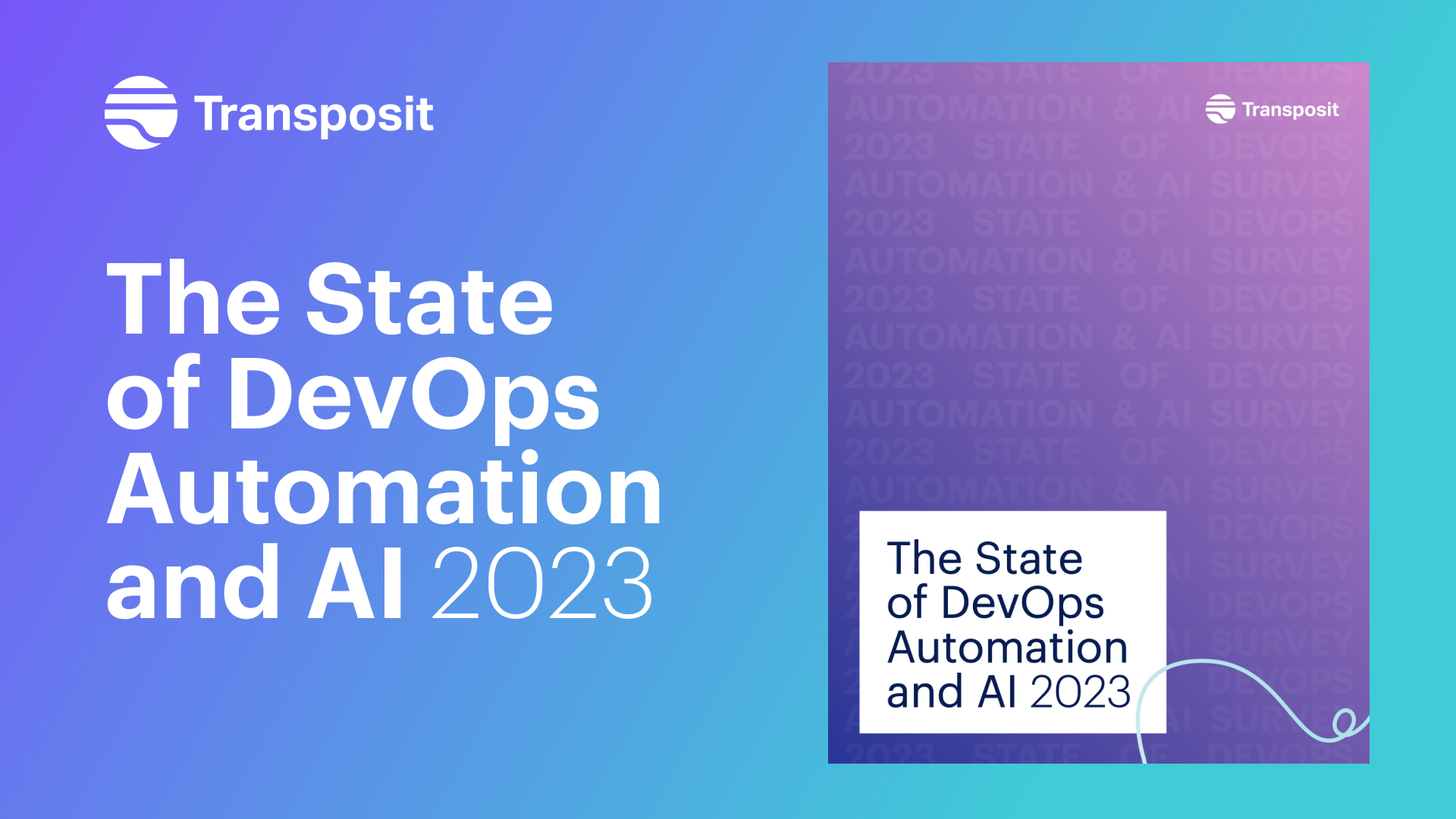The State of DevOps Automation & AI 2023 Report Reveals an "Incident Management Paradox"
Unravelling the paradox — a majority of people have defined incident processes and automation that meets their needs, yet they report a surge in incidents, MTTR, and cost of incidents.

In the ever-evolving landscape of DevOps and Site Reliability Engineering (SRE), The State of DevOps Automation & AI 2023 report reveals a perplexing paradox. While a majority of organizations reported having well-defined incident management processes and a level of automation that meets their needs, they are grappling with an alarming surge in service incidents, increased Mean Time To Resolution (MTTR), and skyrocketing incident costs.
The numbers speak volumes: 67% report an increase in customer-impacting incidents, 61% see MTTR on the rise, and incident costs have reached up to $499,999 per hour, a staggering 5% increase from the previous year. It is evident that the status quo, which satisfies many, falls short in the face of fragmented ecosystems and mounting operational complexities.
A few findings point to why this might be.
Script fragility: Nearly three-quarters of respondents (74%) reported that people responsible for reliability engineering are experiencing challenges while trying to resolve incidents as they are occurring. The top challenge? Scripts designed to automate common response actions (such as scaling infrastructure) are too brittle to changes in tool APIs. Traditional rule-based automation is not keeping pace with the rapid changes across the DevOps environment.
Focus on automating incident setup and communication: When asked what part of their incident management process respondents most want to automate, 50% said setting up an incident, 48% said auto-creating incidents and triggering automation from incoming alerts, and 44% said communicating internally during incidents. And this makes sense — in terms of automation, these areas are low-hanging fruit that can make a substantial difference.
But people still showed a strong desire to automate other parts of their process, like automating investigation (pulling graphs, logs, metrics) (30%) and automating scripts to remediate incidents (29%). It’s clear that many organizations have yet to expand their automation past incident communications, making the longest and most costly parts of incidents — investigation and remediation — still highly manual.
This apparent paradox highlights a significant challenge faced by many DevOps teams. While their existing processes and automation tools may be adequate for handling routine incidents, they struggle to cope with the growing complexity of modern operations. Traditional rule-based automation is limited in its ability to adapt to evolving circumstances, leaving organizations vulnerable to prolonged downtime, customer dissatisfaction, and escalating financial losses.
AI: The Key to Unlocking Efficiency
It’s clear that people want a more adaptive way of working and capabilities that go beyond incident communication. The survey results underscore a near-unanimous consensus on the potential benefits of AI in DevOps, with 84.5% believing AI can significantly streamline incident management processes and improve overall efficiency. When asked how they believed AI would be beneficial throughout the incident management lifecycle, 60% said for predictive modeling to forecast potential incidents and 58% said for providing real-time data analysis and insights for faster resolution.
AI has the power to automate routine tasks, allowing teams to redirect their efforts towards more complex and strategic challenges. However, to fully address the incident management paradox, we need a more adaptive approach to automation.
Enter “LLM-based automation,” a paradigm shift that holds the key to resolving the paradox. Unlike traditional automation, which relies on predefined rules, LLM-based automation dynamically adjusts to real-time changes in APIs, tools, and processes. It assimilates cues and context, enabling it to evolve alongside the ever-shifting landscape of DevOps.
Generative AI: Transforming Incident Management
Generative AI plays a pivotal role in redefining incident management processes. It goes beyond merely enhancing automation; it crafts instant solutions and processes, allowing businesses to swiftly adapt to unforeseen challenges within Site Reliability Engineering (SRE) and DevOps practices.
Here are some ways generative AI is transforming incident management:
Real-time Adaptation: Generative AI can adapt to changing circumstances on the fly. It ingests cues, context, and historical incident data to make informed decisions, improving incident resolution speed.
Proactive Incident Prevention: By analyzing patterns and trends, generative AI can identify potential incidents before they occur, enabling proactive mitigation and reducing incident frequency.
Contextual Communication: Generative AI enhances communication during incidents, providing context-rich updates to stakeholders and improving collaboration.
Dynamic Workflow Optimization: It optimizes workflows by continually learning from past incidents, reducing MTTR, and minimizing downtime costs.
The “incident management paradox” exposed by the State of DevOps Automation & AI 2023 report underscores the need for innovation in incident management. While many organizations have well-established processes and automation tools, they struggle to keep pace with the evolving DevOps landscape.
AI, particularly generative AI and LLM-based automation, offers a transformative solution. By dynamically adapting to changing circumstances and crafting instant solutions, AI redefines incident management efficiency. It empowers DevOps teams to not only resolve incidents faster but also prevent them proactively. Organizations that embrace AI-driven adaptive automation will find themselves better equipped to tackle the paradox, reduce downtime costs, and deliver exceptional customer experiences.
Human-in-the-Loop AI: AI as a Teammate
While our report showed a strong desire to incorporate AI into incident management, it’s clear that the best way forward will be one where humans and AI work side-by-side, taking a human-in-the-loop approach. An overwhelming majority (90.4%) of respondents believe that leveraging insights from human data — such as archived Slack communications, retrospective interviews, and group feedback — could improve incident management and operational efficiency. The vast majority also agree automation should let humans use judgment at critical decision points to be more reliable and effective — a nearly 10% increase from the 2022 State of DevOps Automation study.
We’re steadfast in our belief that AI — fabulous at tasks like analyzing large amounts of data, finding patterns, and providing contextual analyses — working alongside the unique expertise of humans will be the best partnership for modern ops teams.
Let’s Reimagine Incident Management, Together
We’re dedicated to developing the next generation of incident management, powered by AI. We believe AI — working as a copilot alongside the expertise of SREs — can substantially boost operational efficiency and help organizations deliver reliability at scale. With the increase in operational complexity and rapid changes to tools, processes, and teams, AI can help us adapt on the fly and be better prepared for the unexpected.
Our vision is to empower a thriving DevOps community dedicated to shaping the future of AI for operations. To support this mission, we’re offering Transposit’s Basic AI for free, allowing you to experience the potential of AI in incident management firsthand. Learn more about how Transposit is bringing AI to incident management and sign up for free — for unlimited users!
Related Articles

Back to Basics: The Core of AI's Future Lies in Mastering Integration

AI Recommendations: Ask Anything About Your Data for Instant Guidance

Streamline Incident Communications With AI-Generated Summaries & Key Events

